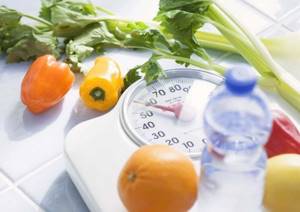Fasting is the restriction of food intake, and in some techniques, water, for a limited time. This condition is used in official medicine in the treatment of pancreatic diseases and preparation for surgical interventions. Some people practice giving up food to lose weight. What happens in the body if you don’t eat for 3 days and drink only water?
Is it possible to improve your health and how many kilograms can you lose? Or do such methods only cause harm?
Is it possible to fast
So, first, let's figure out whether it is useful to completely give up food for a whole day?
Not eating for 24 hours is a form of fasting, a very popular practice among those who diet or fast.
The principle is that during a 24-hour fast, you can only consume calorie-free drinks and drink plain water. After the 24-hour period, you can resume your normal food intake until the next fast.
In addition to weight loss, intermittent fasting can have a positive effect on your metabolism, improve cardiovascular health, and more. According to experts, such fasting can be practiced only with the permission of a doctor and in the complete absence of contraindications.
While this technique may seem simpler than cutting daily calories, it can come with many pitfalls in the form of health problems.
In addition to making you feel hungry, daily fasting can cause serious side effects or complications in people with certain medical conditions.
Therefore, before starting this practice, be sure to visit a doctor. Only a specialist can advise the patient about individual benefits and risks.
A week is not a long time
Based on the experience of people who practice fasting in order to cleanse the body, we can say with certainty that weekly fasting is a relatively common diet. Of course, before you dare to take such a step, you need to be examined by your attending physician.
Some people who periodically practice similar experiments on the body dare to abstain from food for a period of a month to 40 days; it is at this indicator that the critical mark has frozen, which cannot be crossed, based on the physiological needs of the body. Long-term fasting is carried out under the supervision of specialists. But a person can do without liquid for no more than 5 days. If you drink water correctly while abstaining from food, you can thoroughly cleanse the body of waste and toxins.
Fasting for the body
Are there any benefits to this method or will it only harm your health?
More research is needed to clearly understand how not eating for 24 hours can affect your body. The earlier study does offer several advantages.
Firstly, this practice promotes weight loss.
According to some experts, fasting one or two days a week causes you to consume fewer calories over time. For this reason, this method seems easier than cutting a certain number of calories each day.
Restricting calories can also improve metabolism, helping with weight loss.
Regular daily fasting helps stabilize cholesterol and blood sugar levels. In turn, these changes in your metabolism reduce your risk of developing diseases such as diabetes and cardiovascular disease.
What happens if you don’t eat for 2, 3, 4 days

If you fast for more than a day, dehydration develops, the biosynthesis of ketone bodies increases and ketoacidosis occurs. The number of ketone bodies increases, but they cannot be fully broken down, accumulating in the blood and poisoning the body. As a result, the pH of the blood decreases and the functioning of internal organs is disrupted. The heart stops beating normally, which leads to poor circulation and insufficient oxygen supply to tissues.
To provide cells with the necessary substances and energy, the body begins to burn fat reserves. But here too a problem arises. To break down fat cells, carbohydrates are required, which are absent from the body due to fasting. Metabolism is disrupted, toxins and other harmful substances accumulate inside, acidosis develops, the characteristic symptoms of which are:
- Headache;
- Smell of acetone from the mouth;
- Violation of general health;
- Fainting.
Benefits of Fasting
Practicing 24-hour fasting can help reduce your risk of coronary heart disease in the following ways:
Daily fasting for a long time reduces the level of trimethylamine N-oxide. High levels of this compound are known to be associated with coronary heart disease, so it may actually help reduce your risk of the disease.
Fasting has other benefits as well. For example, fasting for 24 hours also helps:
-reducing inflammation in the body;
-reducing the risk of certain types of cancer;
-reducing the risk of neurological diseases such as Alzheimer's and Parkinson's disease.
Cons of fasting
And, of course, many are interested in whether there are side effects and risks associated with a 24-hour refusal of food?
Frequent fasting for 24 hours can indeed lead to side effects and increase the risk of certain complications if a person has a number of diseases that he may not be aware of.
It is for this reason that it is recommended to talk to your doctor before starting a fast. This way you will reduce the risk of unwanted consequences for your health.
This is especially important if you have health problems that you are aware of.
So, fasting is strictly prohibited if:
- you have or have had an eating disorder;
- you suffer from diabetes;
- you are pregnant or breastfeeding;
- if you are under 18 years old;
— you are in the recovery period after surgery.
In addition, fasting more than twice a week may increase the risk of cardiac arrhythmia and hypoglycemia.
Who needs to lose weight?
Does everyone who talks about diets and intends to lose pounds really need to lose weight? Body mass index will help with the answer. It is not difficult to calculate, there are several methods of calculation, but the body mass index (BMI), which is calculated according to the formula: weight (in kilograms) / height2 (in meters), is currently the most widely recognized in the medical community.
Normal BMI = from 18.5 to 24.99.
A BMI of 16 or less corresponds to severe underweight
- 16-18.5 - underweight
- 25-30 – overweight
- 30-35 — 1st degree obesity
- 35-40 – 2nd degree obesity
- 40 or more – grade 3 obesity
Normalizing body weight is a necessary task. But if your BMI is within the normal range or even lower, then losing weight is not recommended. If your BMI is higher than normal, weight normalization is necessary. However, it is worth remembering that this is not done through fasting, but through a special diet.

Eat cotton wool, chew worms. How to lose weight in the 20th century Read more
Benefits of water during fasting
What role does drinking water play in such a situation? How much should you drink during fasting?
Of course, drinking enough water is very important. As a rule, we drink 7-8 glasses of water per day. However, during fasting this amount should increase. The more water you drink, the better it is for your body.
Since your body does not absorb water from food during this period, your body is in dire need of moisture. Water helps your digestive system, regulates your body temperature, improves joint and tissue function, and helps you feel energized and alert throughout the day.
You should drink water depending on your weight as well as your activity level.
It is believed that on average men should drink about 15 glasses of liquid per day; for women this norm is slightly lower - 11 glasses of water per day.
Sample menu for 20 days
Let's look at how to go on a water diet for 20 days. Many consider this duration to be optimal in order to prevent stress on the body.
The menu is compiled for one week. Then it should be repeated.
On Monday, breakfast is one egg and a piece of bread with cheese. The following is the diet:
- Additional morning snack: 0.5 cups of cherries and one pear.
- Lunch: chicken fillet (150 g), cucumber and tomato salad (250 g), bread.
- Afternoon snack: a couple of peaches.
- Dinner: veal (100 g), stewed vegetables (250 g).

On Tuesday, the diet is as follows:
- For breakfast – cottage cheese (100 g), a couple of crackers.
- For lunch - a plate of low-fat soup, carrot salad with radishes.
- Afternoon snack: two pears.
- For dinner - boiled vegetables (150 g), buckwheat porridge (100 g) and ½ grapefruit.
On Wednesday we start the day with a fruit salad and then the diet is as follows:
- Lunch: quail broth with the addition of crackers.
- Afternoon snack: dried apricots (4 pieces).
- Dinner: jacket potatoes (two pieces), champignons (200 g).
On Thursday, for breakfast you are allowed to eat two or three tangerines and a couple of breads.
- Lunch: millet porridge with bread and one apple.
- Afternoon snack: summer salad.
- Dinner: kelp salad and schnitzel.
On Friday you must adhere to the following routine:
- Breakfast: two tomatoes and buckwheat porridge (100 g).
- Lunch: okroshka with two slices of bread.
- Afternoon snack: mixture of frozen berries (100 g).
- Dinner: turkey meat (150 g), cabbage salad, one peach.
On Saturday, you should eat one pear and rice porridge (100 g) for breakfast. Further:
- Lunch: chicken liver, light vegetable salad.
- Afternoon snack: kiwi (two pieces).
- Dinner: steamed pork (150 g), it is important that there are no layers of fat in it. Plus a vegetable salad.
The menu for Sunday includes:
- Breakfast: cottage cheese (100 g) and fruit salad.
- Lunch: soup and one hard-boiled egg.
- Afternoon snack: walnuts (three pieces).
- Dinner: chicken, vegetable salad and two pieces of toast.

Next week the menu should be repeated
Preparing for fasting
How to eat properly if you decide to start fasting?
Since fasting, in any case, is stressful for the body, it is important to properly prepare for it in advance. Eating healthy, nutritious foods before practicing will help your body get through this ordeal.
So, here are some foods that you should include in your diet before you start your fast:
-Protein-rich foods, such as nut butters and legumes;
- low-fat dairy products such as low-fat yogurt or cottage cheese;
-fruits and vegetables;
- whole grain starches.
High-fiber foods will help your body feel full long after eating. Fruits and vegetables contain water necessary for normal functioning of the body.
What is the essence of the “water diet for the lazy”
This is a very simple diet to stick to, just follow two basic principles.
- A quarter of an hour before each meal you need to drink one or two glasses of water.
- During meals, as well as for two hours after it, any liquid is prohibited. After a while, drink a cup of tea or a glass of water, but in its pure form, without additional desserts.
If you follow these simple rules for losing weight, the result will not be long in coming. But only if you combine these recommendations with physical training and a balanced diet.
The water diet itself, if you remain indifferent to sports and do not change your diet, will be ineffective.
How to fast properly
It's important to drink plenty of water and other non-calorie drinks while fasting, but keep in mind that caffeinated drinks may cause you to lose more water.
So if you can't live without caffeine, drink an extra cup of water after every cup of coffee to help keep your body hydrated to function properly.
Continue to eat healthy foods after your fast ends and avoid overeating. Start returning to your normal diet with a light snack.
And finally, I would like to emphasize once again that daily fasting can be practiced only with the permission of a doctor and in the complete absence of health contraindications.
How much weight is lost during a fast after 6 pm?
This method of losing excess weight depends on the individual characteristics of each organism. And also from the metabolic process occurring in the body of a particular woman.
Someone may not eat for months after 6 and not observe any changes. And someone, as usual, will eat after 6, and after 7, and even after 10 pm, but will constantly lose weight.
Only those women who have actually gained excess weight are able to lose weight especially. Therefore, by limiting themselves to food after 6 pm, they lose those hated pounds.
And those women who naturally have a curvaceous physique cannot move their weight. In this case, you should understand that, most likely, what is inherent in nature cannot be changed. Really evaluate your appearance; perhaps you don’t need to lose weight at all.
If, nevertheless, you are determined to lose extra pounds, then before the process, assess the state of your health, and also accompany dietary procedures with physical activity.
Limiting your calorie intake after 6 pm is beneficial for almost everyone. If you are not losing weight, then in this way your gastrointestinal tract rests, and this is beneficial for the body in that it is cleansed of harmful toxins and waste.










